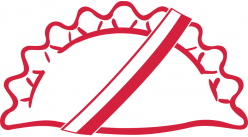Meaning:
Lit. “a human is not a camel and needs to (have a) drink”. It’s a polite and humorous way of complying to a suggestion of alcohol consumption. At times it might sound a bit like surrendering to a devil’s voice, even after you’ve done your best to oppose it and stay sober. This sentence usually precedes a serious drinking bout resulting in a really bad hangover and remorse. It’s also quite often used as a wedding party toast.
The perfidious and funny part of the saying is that camels, being reasonable and responsible animals, don’t drink alcohol, just water. However, “wódka” being a diminutive form of “woda” (water) brings them shockingly closer to being an animal patron of alcoholics.
Continue reading Człowiek nie wielbłąd, pić musi
